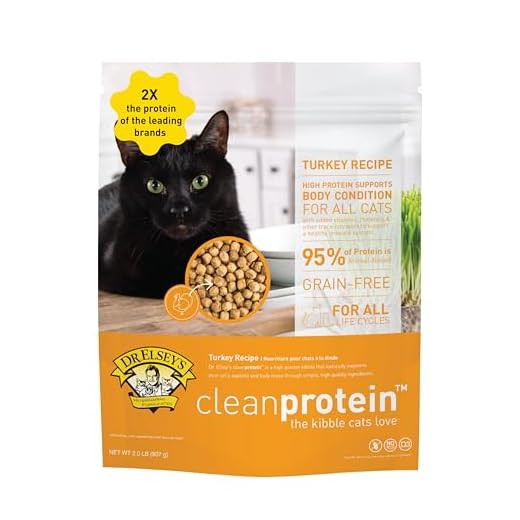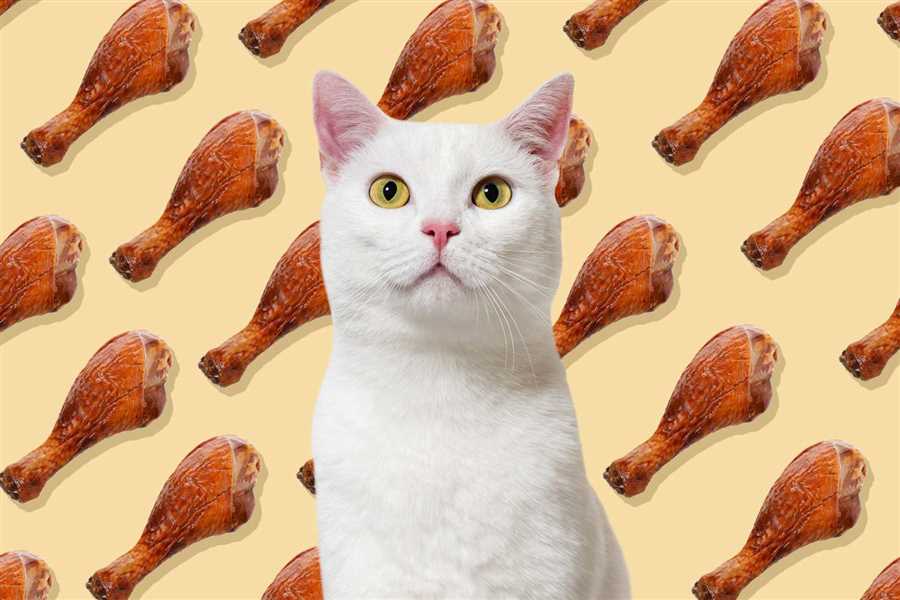


Thanksgiving is a time for enjoying a variety of delicious foods, and one popular dish on the table is turkey. Many people wonder if it is safe to share this tasty treat with their feline friends. Can cats have cooked turkey?
The short answer is yes, cats can eat cooked turkey. However, there are a few precautions that need to be taken to ensure the safety and health of your furry companion.
First and foremost, it is important to note that the turkey should be plain and free from any seasonings, butter, or spices. Cats have delicate digestive systems and cannot handle certain ingredients that are commonly added to human food.
Furthermore, it is essential to remove the turkey bones before offering it to your cat. Bones can pose a choking hazard and may also splinter, causing potential damage to their digestive tract.
Lastly, while small amounts of cooked turkey are generally safe for cats, it should not become a regular part of their diet. Cats have specific nutritional needs that are best met through a balanced and specially formulated cat food.
Is It Safe for Cats to Eat Cooked Turkey?
Many cat owners wonder if it’s safe to share their Thanksgiving turkey with their furry friends. While cats can eat turkey, it’s important to follow certain guidelines to ensure their safety.
First and foremost, make sure the turkey is fully cooked. Undercooked or raw turkey can contain harmful bacteria such as salmonella, which can make cats sick. It’s also essential to remove any seasoning, skin, and bones before serving turkey to cats.
Cats should only consume plain, unseasoned turkey without any added spices or seasonings. Some spices, like onions and garlic, can be toxic to cats and should be avoided. Additionally, high levels of sodium found in seasoned turkey can be harmful to cats’ kidneys.
When feeding cooked turkey to cats, it’s essential to provide small, bite-sized pieces to prevent choking. Turkey bones can splinter and cause intestinal blockages or punctures, so they should never be given to cats.
It’s also important to remember that turkey should only be an occasional treat for cats. Cats have specific dietary requirements, and their main diet should consist of balanced cat food that meets all their nutritional needs.
If you’re unsure about whether to feed your cat cooked turkey, it’s always best to consult with your veterinarian. They can provide personalized advice based on your cat’s specific needs and health condition.
Potential Risks of Feeding Cooked Turkey to Cats
While it may be tempting to share your cooked turkey with your furry feline friend, there are potential risks that you should be aware of.
1. Bones
Turkey bones can pose a serious danger to cats. Cooked bones can splinter easily and may cause puncture wounds or even blockages in the digestive system if swallowed. It is important to remove all bones from the turkey before giving it to your cat.
2. Seasonings
Many traditional turkey seasonings, such as garlic, onion, and certain herbs, can be toxic to cats. These ingredients can cause digestive upset, anemia, or even damage to their red blood cells. It is important to avoid seasoning the turkey with any harmful ingredients for your cat’s safety.
3. Fatty Foods

Cooked turkey skin and fatty pieces can be difficult for cats to digest and may result in pancreatitis. This condition causes inflammation of the pancreas and can lead to symptoms like vomiting, diarrhea, and loss of appetite. It is best to refrain from giving your cat any fatty parts of the turkey.
4. Allergies
Some cats may have allergies or sensitivities to turkey. Feeding them cooked turkey can cause allergic reactions, including itching, skin rashes, and gastrointestinal issues. If your cat has never had turkey before, consider introducing it gradually and monitoring for any adverse reactions.
It is always a good idea to consult with your veterinarian before introducing any new foods to your cat’s diet, including cooked turkey. They can provide guidance based on your cat’s individual needs and help you make informed decisions to keep your cat safe and healthy.
Safe Alternatives for Feeding Cats on Special Occasions
When it comes to special occasions, many cat owners want to share the festivities with their feline friends. However, it’s important to remember that not all human foods are safe for cats to consume. In order to keep your cat healthy and happy, here are some safe alternatives for feeding them on special occasions:
1. Cooked Turkey
Turkey is a common food served during special occasions like Thanksgiving or Christmas, but can cats have cooked turkey? Yes, they can! Cooked turkey meat can be a safe and delicious treat for your cat, as long as it is boneless, skinless, and well-cooked. Avoid giving them any seasoned or spiced turkey, as certain seasonings like garlic and onion can be toxic to cats.
2. Plain Green Beans
If you’re looking for a healthy and low-calorie alternative, plain green beans can be a great choice. Cats can enjoy a few plain, cooked green beans as a special treat. Just make sure they are not canned green beans with added salt or seasonings.
It’s important to keep in mind that these alternatives should be given in moderation and as occasional treats. Feeding your cat too much of any new food can lead to stomach upset or digestive issues. Always consult with your veterinarian before introducing any new foods into your cat’s diet, especially if they have specific dietary restrictions or health conditions.
In conclusion, while it’s tempting to share our special occasion meals with our furry friends, it’s crucial to prioritize their health and safety. By offering safe alternatives like cooked turkey and plain green beans, you can include your cat in the celebration while ensuring their well-being.
Question-answer
Can cats eat cooked turkey?
Yes, cats can eat cooked turkey in moderation. It should be boneless and plain, without any seasonings or added ingredients.
Is it safe for cats to have cooked turkey?
Yes, it is generally safe for cats to have cooked turkey as long as it is prepared properly. However, it should only be given to them as an occasional treat and not as a regular part of their diet.
What should I consider before feeding cooked turkey to my cat?
Before feeding cooked turkey to your cat, you should ensure that it is boneless, plain, and free from any seasonings or added ingredients. You should also introduce it in small amounts and monitor your cat for any adverse reactions.
Can cooked turkey be harmful to cats?
Cooked turkey can be harmful to cats if it contains bones, seasonings, or added ingredients such as garlic, onions, and gravy. These can cause digestive issues, gastrointestinal blockages, or even toxicity in cats.
Why is it important to feed cats cooked turkey in moderation?
It is important to feed cats cooked turkey in moderation because it should not replace their balanced diet of cat food. Turkey is high in protein and may cause digestive upset or nutritional imbalances if given in excess.
Can cats eat cooked turkey?
Yes, cats can eat cooked turkey in moderation. Make sure it is boneless, skinless, and free of seasoning or any other additives. Turkey meat can provide a good source of protein for cats.
Is cooked turkey safe for cats to eat?
Yes, cooked turkey can be safe for cats to eat if it is prepared properly. Remove any bones, skin, and seasonings before giving it to your cat. Also, make sure the turkey is fresh and not spoiled. It should be given in small amounts as a treat or added to their regular cat food.






